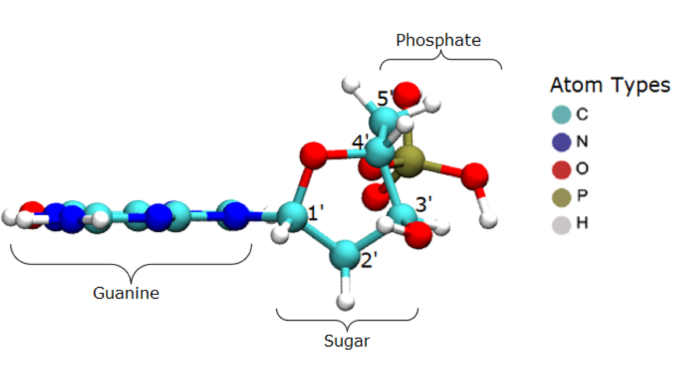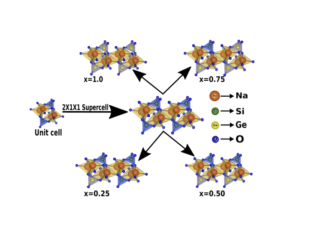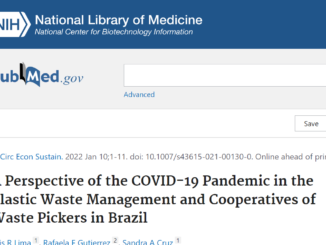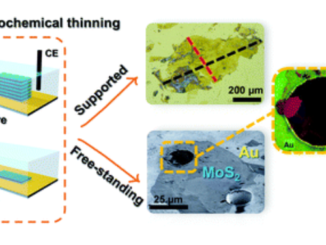
A TD-DFT-Based Study on the Attack of the OH· Radical on a Guanine Nucleotide
Abstract: Heavy charged particles induce severe damage in DNA, which is a radiobiological advantage when treating radioresistant tumors. However, these particles can also induce cancer in humans exposed to them, such as astronauts in space missions. This damage can be directly induced by the radiation or indirectly by the attack of free radicals mainly produced by water radiolysis. We previously studied the impact of a proton on a DNA base pair, using the Time Dependent-Density Functional Theory (TD-DFT). In this work, we go a step further and study the attack of the OH· radical on the Guanine nucleotide to unveil how this molecule subsequently dissociates. The OH· attack on the H1′, H2′, H3′, and H5′ atoms in the guanine was investigated using the Ehrenfest dynamics within the TD-DFT framework. In all cases, the hydrogen abstraction succeeded, and the subsequent base pair dissociation was observed. The DNA dissociates in three major fragments: the phosphate group, the deoxyribose sugar, and the nitrogenous base, with slight differences, no matter which hydrogen atom was attacked. Hydrogen abstraction occurs at about 6 fs, and the nucleotide dissociation at about 100 fs, which agrees with our previous result for the direct proton impact on the DNA. These calculations may be a reference for adjusting reactive force fields so that more complex DNA structures can be studied using classical molecular dynamics, including both direct and indirect DNA damage.
Author(s): João Santiago; Jhaison C. de Faria; Miguel San-Miguel; Mario A. Bernal
Int. J. Mol. Sci.
Published: 2 September 2022
DOI: https://doi.org/10.3390/ijms231710007
CDMF
The CDMF, hosted at the Federal University of São Carlos (UFSCar), is one of the Research, Innovation and Dissemination Centers (RIDC) supported by the São Paulo State Research Support Foundation (Fapesp), and also receives investment from the National Council Scientific and Technological Development (CNPq), from the National Institute of Science and Technology of Materials in Nanotechnology (INCTMN).




